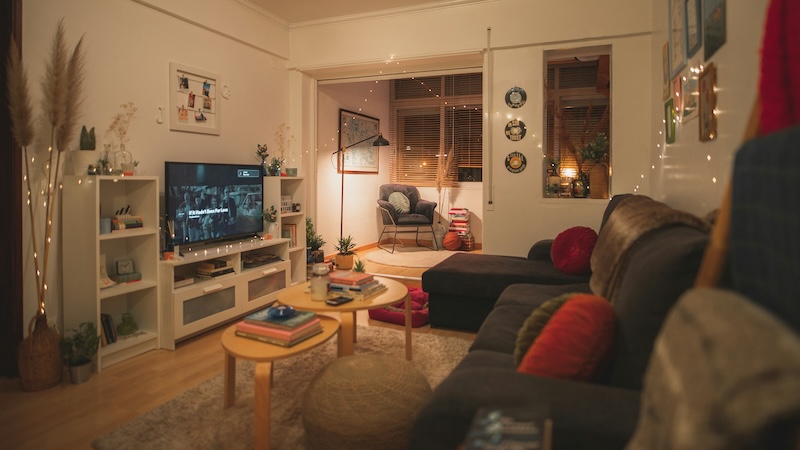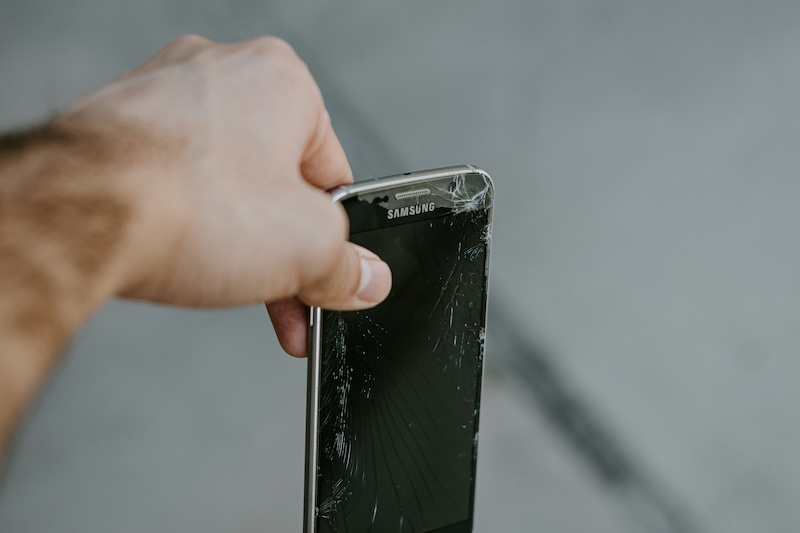Accidental Damage Insurance Explained
Protect your valuables and your home from life’s little mishaps.

Protect your valuables and your home from life’s little mishaps.

Accidental damage insurance is a type of cover that protects you financially when life’s unexpected mishaps occur—like spilling red wine on a cream carpet or accidentally cracking your smartphone screen.
We’ll explore what’s covered and how you can gain peace of mind for those unforeseen moments.
Accidental damages are unforeseen, unintentional damage to your home or belongings caused by one-off incidents. This includes situations like:
Standard home insurance policies typically provide cover for theft, fire, or weather-related damage but don’t include accidental mishaps unless you’ve added this as a feature. This insurance fills that gap by addressing life’s everyday unforeseen moments.
Accidental damage can apply to both your buildings insurance (the structure of your home) and contents insurance (your belongings).
If you’ve included accidental damage cover as part of your buildings insurance, you’re protected against damage to the physical structure of your home and permanent fixtures. This could cover:
Accidental damage cover for contents insurance ensures you’re protected if your prized possessions get damaged unexpectedly. Common examples include:
Keep in mind that the coverage can vary significantly between insurers. Always review your policy documents to confirm what’s included.
While this type of insurance is a helpful add-on, most policies have some exclusions, such as:
No, accidental damage insurance is not required by law, but whether this add-on is worth it for you or not depends on your unique circumstances. Here are some questions to help determine if you need accidental damage insurance:
Imagine this: You’re cooking a Sunday roast when a pan slips from your hands, shattering your ceramic hob. Fortunately, you’ve added accidental damage cover to your home buildings insurance policy, with a £250 excess. Filing a claim with your insurer is simple, and once approved, you’ll receive £250 for repairs. Your kitchen is restored, and your favourite appliance is as good as new.
Lemonade offers an Accidental Damage add-on designed to protect your belongings from sudden, unforeseen damage—both inside and outside your home. Both contents insurance and home buildings insurance customers can add this optional extra.
Here’s what this add-on covers:
Keep in mind, this add-on doesn’t include mobile devices like phones, tablets, laptops, or smartwatches—that’s what our Accidental Damage to Mobile Devices add-on is for.

This optional extra is our gold-standard add-on, providing comprehensive coverage for mobile devices—including your smartphones, smartwatches, tablets, laptops, gaming consoles, or VR headsets.
Lemonade partners with BeValued, who actually pick up your damaged mobile device and repair it using only original parts.
But what if your device needs to be replaced? Smartphones will be replaced with a refurbished, Grade A (mint condition) mobile. All other devices will be replaced as-new.
Keep in mind: you must first purchase the standard Accidental Damage add-on before adding this extra layer of protection.
The Accidental Damage to Mobile Devices add-on protects devices like smartphones, tablets, and laptops from accidental damage, such as dropping your phone on the tube and suffering a cracked screen. It doesn’t include theft or loss, making it a focused option for specific mishaps.
Gadget insurance, however, offers wider protection—covering theft, loss, and often worldwide incidents alongside accidental damage. It’s ideal for those needing all-round coverage, especially when travelling, while the Accidental Damage to Mobile Devices add-on is better for simple, at-home accident protection.
Accidental damage cover may not undo the spill, drop, or smash, but it can certainly take the financial sting out of the unexpected. From protecting your prized possessions to giving you peace of mind for your home’s safety, it’s a practical option for anyone who values preparedness.
Explore Lemonade’s flexible home insurance options today.
Yes, most claims require you to pay an excess, which is the amount you’re responsible for before the insurer covers the rest. The excess amount will depend on your home insurance policy, so check your policy documents to confirm the terms.
Gadget insurance provides protection for your electronic devices like laptops, smartphones, and tablets against accidental damage, theft, or loss. It’s particularly useful for high-value gadgets, offering peace of mind and saving you from out-of-pocket expenses in the event of mishaps.
Yes, accidental damage cover often covers cracked TV screens if the damage was caused by an unexpected mishap—like when your children’s living room football match turns your TV into an unintentional goal.
Yes, many insurers allow you to add accidental damage cover as an additional feature to your existing home insurance policy. Lemonade customers can manage their cover anytime on the Lemonade app.
However, it’s important to note that insurance doesn’t cover any pre-existing damage to your home or belongings. For example, imagine your toddler got a hold of your mobile, and dropped it—shattering the screen. If you added Accidental Damage to Mobile Devices cover to your policy the following day and attempted to claim the incident, it wouldn’t be covered, because the damage occurred before the accidental damage cover was included in your policy.
Please note: Lemonade articles and other editorial content are meant for educational purposes only, and should not be relied upon instead of professional legal, insurance or financial advice. The content of these educational articles does not alter the terms, conditions, exclusions, or limitations of policies issued by Lemonade, which differ according to your state of residence. While we regularly review previously published content to ensure it is accurate and up-to-date, there may be instances in which legal conditions or policy details have changed since publication. Any hypothetical examples used in Lemonade editorial content are purely expositional. Hypothetical examples do not alter or bind Lemonade to any application of your insurance policy to the particular facts and circumstances of any actual claim.